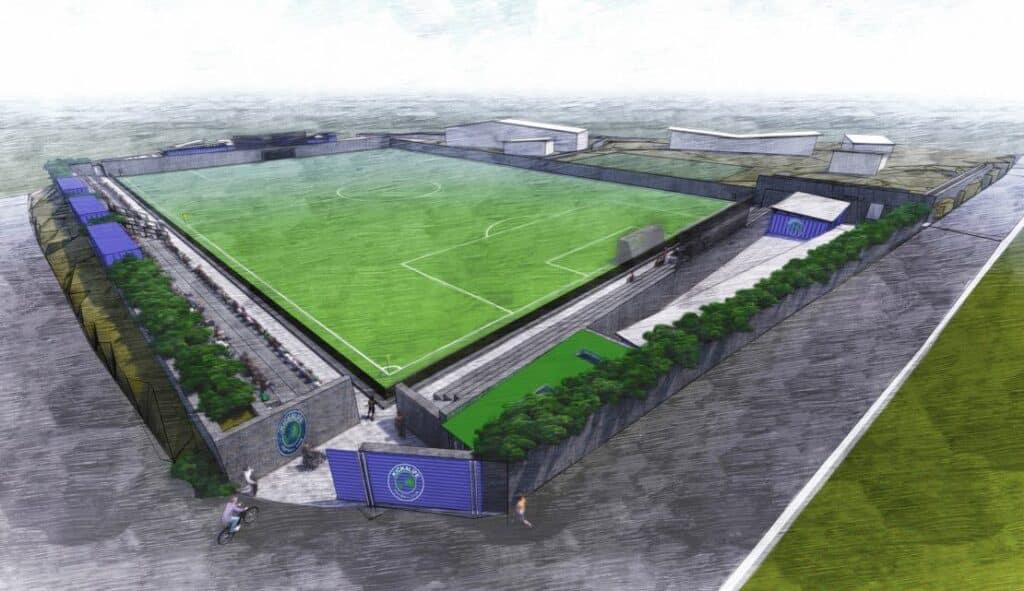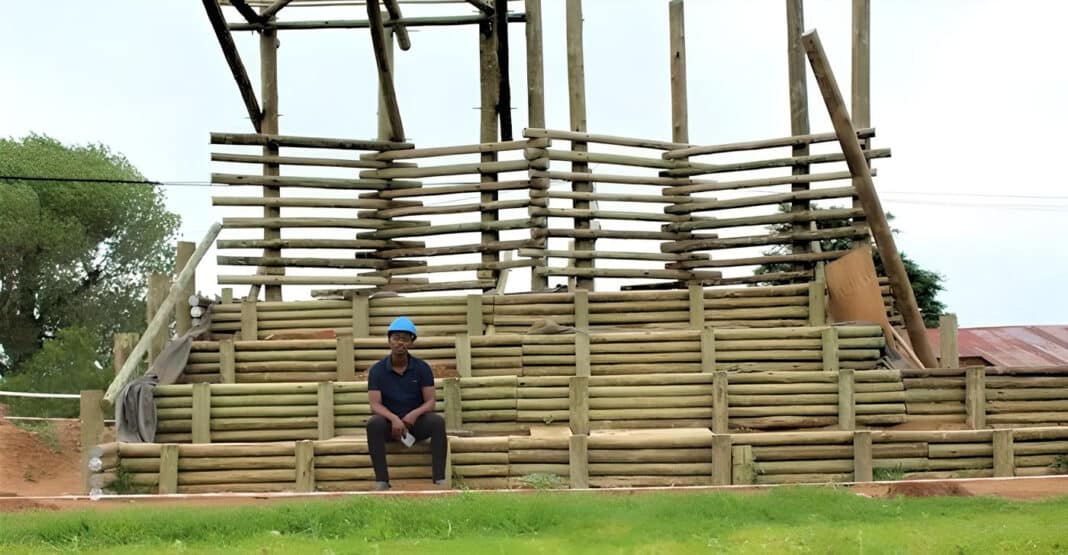A new football stadium, dubbed the “Stadium of Life,” is rising fast in Lesotho, Southern Africa. The new build is Africa’s first “certified” timber stadium and the first “FSC-certified” project in Southern Africa, comes as policy markers now “bet on timber” to meet infrastructure needs.
Once opened, the new stadium will be renamed “FSC Stadium of Life” after FSC International secured the €75,000 naming rights for the next five seasons.
As Gerard Busse, FSC Southern Africa’s Marketing and Communication Manager, explains, “Project certification is more than just a stamp of approval. It’s a promise that the forest materials used in this stadium come from responsibly managed forests, fostering environmental stewardship and, importantly, community development.”

Wood Central understands that the 1,280 all-seater stadium, a collaboration between a local charity, Kick4Life, international ENGO Rise International, FSC International and certification body DNV, commenced construction in August last year and is expected to open for Christmas 2024.
The project will use 8,584 preserved Eucalyptus poles from MTO Forestry’s FSC-certified plantations in Mpumalanga, South Africa. Using “certified timber poles” minimises concrete—a popular material used in constructing stadiums in Africa—while highlighting the potential for sustainable building materials.



“As the construction industry seeks materials with a lower carbon footprint, eyes are turning towards forest products,” according to Pedro Clarke, the project’s lead architect, who stressed the role that bio-based materials like timber can play in reducing carbon emissions. Before adding that “wood acts as a long-life carbon storage mechanism, with one cubic metre of Eucalyptus wood capturing 880kg of atmospheric carbon dioxide.”
In addition, he said the project will also feature a “Biodiversity Stand,” showcasing indigenous plants that enhance K4L’s climate education work.
“The new facility will extend the impact of K4L’s existing centre, serving as both a home ground for the football teams and a platform for social change through football-based programmes,” according to Steve Flemming, co-founder of K4L, with the stadium also featuring repurposed shipping containers, solar-powered lighting, and focus on indigenous landscaping.
According to Daniele Gusman, founder and executive director of Rise International, “the stadium exemplifies a paradigm shift in sports infrastructure, combining social impact and cultural representation,” and comes after Wood Central reported last year that the Global South is turning to timber and bamboo to fuel a booming demand for infrastructure.
- For more information about timber’s importance in lowering global emissions, please visit Wood Central’s special feature on the UN Blueprint to Decarbonise Construction. To learn more about the “Stadium of Life”, visit FSC International’s Fact Sheet.






